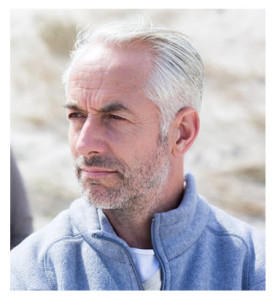Fair weather friends. It’s a concept my mother taught me as a child. I can only guess that the reason for her explanation had to do with an adolescent falling-out, or some other experience in which what I perceived as friendship, ultimately, wasn’t.
 By definition, fair weather friends are only there in good times. When the going gets tough, they back away or disappear entirely.
By definition, fair weather friends are only there in good times. When the going gets tough, they back away or disappear entirely.
Now we all know that each of us sees our relationships differently. Some of us are more guarded, and we treat any connection as tenuous or temporary until months, and likely years, have passed.
Time buys us “proof” of reciprocated feeling and loyalty, while challenges weathered together demonstrate a friend’s mettle — and our own.
Others are more willing and able to take friendship — and romance, for that matter — at face value. As examples, we have only to think of our crushes, our experiences of unrequited love, or of admiring a new acquaintance before knowing if our budding affinity will be returned in equal measure.
These differences in perceived intensity, mutuality, or possibility of connection are the subject of a column in The New York Times.
Are Your Friends REALLY Your Friends?
The question of whether your friends actually like you is fascinating, and possibly a cautionary tale for those susceptible to taking relationships of all sorts too seriously, too naively, and too soon.
Kate Murphy writes:
… research indicates that only about half of perceived friendships are mutual.
And while this is no surprise to many of us, especially as we grow older, this is troubling because…
… the authenticity of one’s relationships has an enormous impact on one’s health and well-being.
The Mayo Clinic agrees, noting that it’s quality over quantity that counts, reminding us that friends:
… [help] your sense of belonging and purpose… your self-confidence and self-worth… Help you cope with traumas, such as divorce, serious illness, job loss or the death of a loved one… Encourage you to change or avoid unhealthy lifestyle habits…
Indeed.
Although some will judge us by the company we keep, more importantly, identity and self-esteem are reinforced by those who stand at our side and even more so, in our hearts.
Managing Expectations in Relationships
Recently I took a short trip out of town, and I met a number of warm, welcoming, and interesting new people. We exchanged contact information, and as I have plans for a return visit, I would like to think that one or two may become friends.
What kind of friends?
That remains to be discovered.
You can see already that I’m managing my expectations. As long as I reside several hours away, realistically, “let’s grab a cup of coffee” is out of the question. Likewise the jaunt to a local gallery or a spontaneous sit-down over a Caesar Salad. And, since all are busy with jobs and families, even were I to live closer, I would still be inclined to tweak my expectations. Our jam-packed schedules and societal “busyness” — you might agree — frequently pose problems, so I would observe and respect how I might fit into their lives and similarly, how they might fit into mine.
Besides, a smile, courtesy, and chit chat do not guarantee that bonds will form. Feeling out friendships takes time. Ditto on getting to know others well enough to discern if a friendship is what you want, and if it is, the sort of friendship it might be — where in our inner and outer emotional circles it belongs — preferably, a matter of mutual understanding.
 Also with time, shared experiences, confidences, and vulnerabilities help establish trust, just as in a romantic relationship. And if we’re smart, we don’t expect all friendships to be “real” or lasting; emotional intimacy is neither achievable nor advisable with everyone we meet.
Also with time, shared experiences, confidences, and vulnerabilities help establish trust, just as in a romantic relationship. And if we’re smart, we don’t expect all friendships to be “real” or lasting; emotional intimacy is neither achievable nor advisable with everyone we meet.
And by the way, wouldn’t a half dozen “intense, serious” friendships be exhausting, even as one true friend can be a godsend?
Healthy Friendships for Healthy Living
Citing experts on the quality of friend relationships, the importance of intimacy and trust, and the “layers” of friendships that we typically accommodate, Kate Murphy elaborates on the growing body of neuroscience that pinpoints the health impacts associated with friendship.
According to medical experts, playing it safe by engaging in shallow, unfulfilling or nonreciprocal relationships has physical repercussions. Not only do the resulting feelings of loneliness and isolation increase the risk of death as much as smoking, alcoholism and obesity; you may also lose tone, or function, in the so-called smart vagus nerve, which brain researchers think allows us to be in intimate, supportive and reciprocal relationships in the first place.
In other words, as with other “muscles,” use it or lose it.
Given our complicated lives and an isolating society, a friend is precious indeed. Moreover, cast in the sometimes slippery and superficial light of social media, it is easy to see how vulnerable we all are to mistaking casual friendships of convenience for the real deal.
In my somewhat cloistered existence these past years, I see how painful the loss of two friendships has been to me. In the wake of those losses (and others), I also see how important one other long-running friendship was in helping me heal by feeling connected to someone who truly cares. While I don’t explicitly seek to replace what went missing, at moments, I am keenly aware of the emptiness where those friendships once knew a home in my life.
Trust. Betrayal. Perception.
 Is our trust always well-placed?
Is our trust always well-placed?
Of course not, and precisely because we must learn to recognize who we should reveal ourselves to, and who to keep at arms length. Because trusting everyone is neither safe emotionally nor physically. Because trust is a gift that comes with shades and rhythms and over the course of hours, days, months, years. And, we each perceive others and our relationships — at every point in time — through a personal and situational lens.
Those wonderful people I met on my recent get-away?
I may perceive each of them with more or less likelihood for a possible friendship than they perceived me.
When friendships wane or disintegrate?
I might see self-preservation where the other experiences betrayal, or vice versa.
As for the fair weather friends who populate our relational spheres, they serve a purpose while things are good — we enjoy their company! Even the notion of a fair weather friend is perception as much as reality. What is worth fighting for to me may be toxic to you. And couldn’t we say the same of a romantic partner, in marriage or not, when one takes his leave if the going gets tough? Shouldn’t we cut each other a break when it comes to judging our relationships?
You May Also Enjoy
It’s tough, this girlfriend thing. I find myself moving again in a few months, having to start over, knowing that finding new friends as I get older can be difficult. And a friend I thought was more than a fair weather friend has shown herself to be just that…dismissing me before I’ve gone. What I long for is a true, really close, really relatable, honest and open girlfriend. Perhaps I’ve just moved too much in my life to ever really feel anything but on the fringes with friends…..so you’re right, at least fair weather friends can be enjoyed while the sun shines.
Yes, I agree, Barbara. The girlfriend thing can be so tough. And if you have to relocate and start over trying to make friends, that can seem daunting. I hope you will keep us posted on your possible move.
Hi Barbara,
I’ve moved so many times in my lifetime that I would have to stop and make a list for an exact count. I’ve never really established roots so friendships have always been difficult to establish. I had a friend for over 40 years who ghosted when my life became difficult – death of several family members, sale of my business, marriage separation, sale of my home, and relocation across the country (funny because I was actually geographically closer to her than I had been for 10 years). So, yes, it’s difficult to establish intimate friendships at my age (58) but I’m physically active so I spend time with those who like to be active as well. All I can do is enjoy their company and manage my expectations of both myself and them.